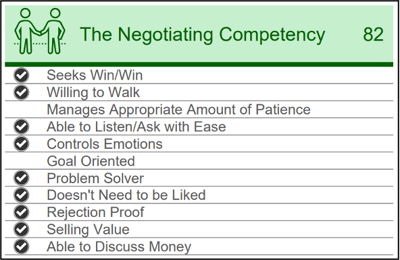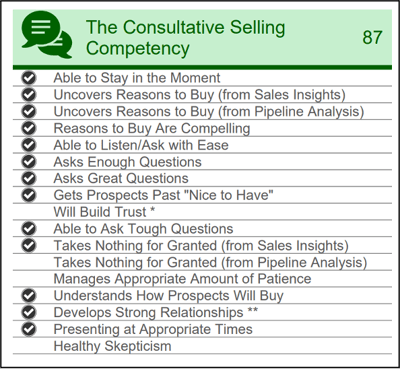There is no greater benefit than hearing from a client how they are implementing a sales development program in their bank and their culture. We recently had the benefit of 45 minutes of input from one of our valued banking clients and learned how they are building their team of successful, relationship building bankers.
Certainly, we are helping this leader with our Sales Managed Environment and Effective Selling System sales tactics, but the program is also flourishing due to their strong leadership.
Here are some of their key areas of focus.
- Sales development is for everyone, even the senior bankers. It might be important to treat them differently, provide options and flexibility but greatness is achieved by always learning so top performers must actively participate in sales training.
- Why be good, when you can be great? That is an underlying and consistent theme that drives the development efforts and generates engagement of the bankers. Who does not want to be part of a great team?
- Sales training must be bank-wide, all lines of business are in for a successful bank sales team. The same language must be spoken and an easy-to-follow sales process must be used consistently for bankers to leverage opportunities and bring in partners.
- Sales development is a capital investment and should be positioned and reported as such. This bank reports quarterly on the number and dollars of deals in the pipeline vs year prior as well as improved “pull through rate” which is number of sales compared to deals entering the pipeline.
- Use Big Math for coaching. The data does not lie and it takes the personal out of the conversation. Of course, banks must collect the right data in order to do that including outreaches, appointments, opportunities, presentations, approvals and deals closed. This data will tell a seasoned coach in which areas their bankers need to improve.
- Leverage small group training even though it may be more time intensive or costly, it is worth it. Small group training allows bankers to be more comfortable in front of others in role play. This leader said they practice until the banker no longer feels like “throwing up on their shoes.” That is what gets them to greatness as well as having senior leadership actively present.
- Clear out the BS in the pipeline with regular 30 and 60 day reviews and personal coaching. Do not let the pipeline carry dead weight. This will help the pipeline be more predictive of future success as well as flush out the potential need for more prospecting activity on the part of the banker.
- One way to make the pipeline more real is to require Opportunity Memos on those deals that are in middle to end stages of the pipeline. This memo clarifies the prospect qualifies on the many scorecard attributes identified by the bank.
These days, banking is in the news and the positive side of that is many bank clients are reaching out to their banks to ask questions, explore options, get better rates and feel more secure. This may take banking out of its commodity state of years past and allow for bankers to differentiate and engage their clients and prospects in a new way.








